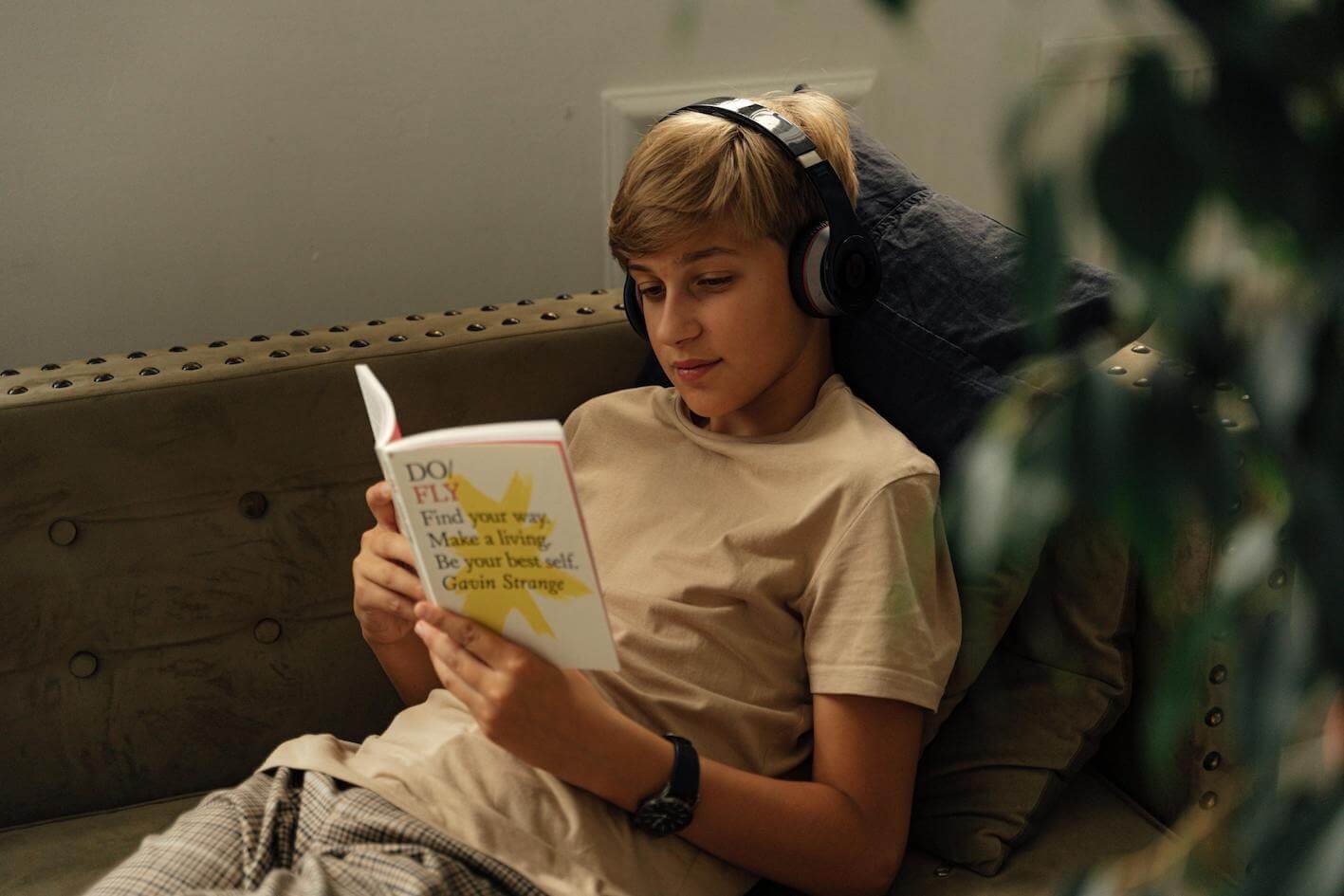
Educational Psychologist Assessment
In Buckinghamshire and Hertfordshire our Educational Psychologist (EP) assessments provide a comprehensive understanding of your child’s strengths and challenges, focusing on areas such as learning difficulties, wellbeing, social skills, emotional regulation, self-esteem, and confidence. Educational Psychology assessments offer valuable insights into the factors affecting their academic, social, and emotional development, as well as practical ways for schools and parents to support them.










Private educational psychologist assessment
What does an educational psychologist assess?
Educational Psychologists use a personalised, detailed and tailored approach to assessment using a combination of cognitive assessments, standardised tests, classroom observation, and consultation with parents and teachers. An EP assessment identifies the underlying causes impacting your child’s progress. An EP may assess children from birth to 25 years of age. This considers the whole child and all of the strengths, abilities and needs they may have. The Educational Psychology report provides personalised recommendations to support learning, social and emotional challenges, and overall wellbeing. The result may be helpful in shaping effective early interventions at home and school, and where needed applications for Education, Health, and Care Plans (EHCPs).
Why have an educational psychologist assessment?
-
How can an educational psychologist support learning?
Our learning, dyslexia diagnostic assessment or dyscalculia diagnostic assessments are conducted by an educational psychologist. The educational psychology assessment will outline an holistic understanding of your child’s abilities and needs and offer personalised recommendations. It will determine if your child meets the criteria for a dyslexia or dyscalculia diagnosis. The EP report will then recommend evidence based interventions and in class support strategies.
-
What do educational psychologists assess in relation to emotional wellbeing?
Educational Psychology assessments through a combination of standardised assessments, consultation and observations help to identify a wide range of emotional and wellbeing factors that can impact learning and development, including low self-esteem, high anxiety, difficulties with emotional regulation, low mood and resilience. It may highlight challenges such as bullying, peer relationships, and ability to adapt to new or stressful situations. The educational psychology report will then provide a list of evidence based suggestions for support or intervention.
-
How can an educational psychologist support children with autism or ADHD?
An Educational Psychology (EP) assessment can provide tailored recommendations to adapt a child’s learning environment, promoting inclusion and enhancing their engagement. The assessment may suggest specific interventions and support strategies that schools can implement to help the child thrive academically and socially. These recommendations are often informed by classroom observations, discussions with the child and family, and collaboration with school staff to ensure a holistic understanding of the child’s needs.
One tool that may be used is the SCERTS framework (Social Communication, Emotional Regulation, and Transactional Support). SCERTS is a comprehensive approach to supporting children with Autism related neurodiversity. It focuses on identifying the child’s strengths and needs and how the environment, and teacher can provide the child with the correct support. This evidence-based framework ensures interventions are individualised and integrated into the school and home settings, leading to meaningful progress in key areas.
-
Why get an EP assessment for an EHCP application?
An Educational Psychologist assessment is often a crucial part of the application process for an Education, Health, and Care Plan (EHCP) and is required in law. It provides a comprehensive understanding of a child’s strengths and challenges, delivering a robust set of tailored recommendations and specific outcomes to meet their individual needs. This assessment ensures that the local authority has a clear and accurate picture of the child’s needs, enabling all areas requiring support to be effectively identified and addressed within the EHCP.
Your child’s school or local authority may organise an EP assessment as part of the statutory EHCP assessment process. This is typically arranged and funded by the local authority, so it’s worth enquiring about this option first. In the following section, we will examine the differences between local authority-provided assessments and private assessments, outlining their respective benefits and key considerations.
Have a question?
What does an Educational Psychologist assessment involve?
Our 5 step educational psychology assessment process is designed to be straightforward and supportive, ensuring parents feel confident at every step. It begins with an initial screening to understand if and EP assessment could be needed. Next, we work closely with you in a collaborative planning stage to shape the assessment around your child. The heart of the process is a child-focused assessment that explores the reasons behind your child’s challenges. After this, you’ll receive a clear and detailed report outlining the findings and recommendations. We also offer ongoing support to help you navigate the next steps in supporting your child’s progress.
1 Initial Screening
The process begins with an initial screening conversation or by submitting a referral. During this step, we will discuss the type of assessment you are seeking and advise whether we believe an assessment would be beneficial. If appropriate, we may also suggest free services that could provide similar support.
2 Collaborative planning
One of our educational psychologists will then contact you for an in-depth conversation about your child and your hopes for the assessment. Together, you’ll create a plan that outlines the scope of the assessment. We will then contact you with the cost for the assessment and you can decide if you wish to proceed.
3 Child Centred Assessment
The educational psychologist will carry out the assessment, which may involve:
A visit to the clinic to complete standardised assessments.
Observations in the school environment.
Conversations with the child, family, and teachers to gather a holistic understanding.
4 Comprehensive Report
After completing the assessment, the educational psychologist will prepare a detailed and personalised report. This report will include:
The areas assessed.
A psychological formulation of findings.
Tailored recommendations for interventions and support
5 Feedback & further support
Once you have reviewed the report, we can arrange a meeting with our education team to help you gain the necessary support in school or guide you through the process of applying for an EHCP.
Frequently Asked Questions
-
There are three main ways to get an educational psychology assessment:
Access through the school’s Special Educational Needs (SEN) provision
Provision via the local authority as part of an EHCP process
A private assessment commissioned by parents
We recommend exploring free options before seeking a private assessment. First, speak to your child’s school about your concerns and clarify what you hope to gain from an Educational Psychologist (EP) assessment. Then, look at the areas an EP report covers from academic performance to wellbeing, so you can prepare a few bullet points on how the EP might help identify issues and recommend specific support and take those to the meeting.
-
Schools need to show “best endeavours” in securing the right support for your child. This means doing everything that could reasonably be expected to meet pupils’ special educational needs (SEN), although it does not always require an EP assessment. Some schools have access to local authority educational psychologists, contracts with private educational psychology providers, or even an EP on staff. If the school agrees an assessment is needed, you could access an EP free of charge. If you disagree with the school’s decision, you can contact your local authority’s free SENDIAS team (just Google your county name and “SENDIAS”) or, if you prefer a paid service, speak to our Education Team, who provide a SENCO second opinion service. However, it is worth noting that many schools do not have access to EPs, and in some areas, there are issues with long waiting times.
As part of an Education Health and Care Plan (EHCP) application, local authorities will provide an educational psychologist as part of the assessment process. However, these professionals are often in high demand, leading to lengthy waits. If you want to learn more about EHCP processes, we have a dedicated page covering this topic in detail.
-
The best person to speak to in a school is usually the SENCo (Special Educational Needs Coordinator). In some schools, the relevant role may have a different title that includes SEN, SEND, Inclusion, or Pastoral, for example, Assistant Headteacher (SEN), Deputy Headteacher (Pastoral), or SEN Officer. In some independent, private, or public schools, it may be called Head of Learning Support, Learning Support Manager, Individual Learning Needs Coordinator, or Deputy Headteacher (Academic). If you are unsure, you can always ask your child’s class teacher or form tutor.
If you are seeking a private educational psychology assessment, you can contact a local provider or ask for a recommendation from your child’s school or college. However, we would still recommend speaking with your child’s school first.
-
All educational psychologists must be registered with the Health and Care Professions Council (HCPC). As a parent, you can check the register at www.hcpc-uk.org by looking up the psychologist’s surname under the “practitioner psychologist” category. All educational psychologists must either have a master’s qualification in educational psychology if they qualified before 2006 or in Scotland or hold a doctorate-level qualification.
You may wish to ask a potential educational psychologist the following questions:
What experience do you have with children in my child’s age range?
What experience do you have supporting needs similar to my child’s?
What training and expertise do you have in these areas?
What can I use your report for?
Will you be specific in your report about recommendations, and avoid vague or inference-based wording?
When can I expect the report?
What happens if I disagree with any information in the report?
Once you feel reassured by the answers, we suggest going with the psychologist who best understands you, your family, and your child’s unique needs. It’s important they truly “get” what you’re looking for and can provide the level of support you expect.
-
Is there a difference between reports from a private and a local authority educational psychologist (UK)?
All educational psychologists in the UK must be registered with the Health and Care Professions Council (HCPC) and hold the required professional qualifications. This ensures a regulated standard of practice, regardless of whether they work privately or for a local authority. However, there can be differences in their experience, specialisms, and the scope of their assessments. Below are some points to consider:
Waiting times
Local authorities sometimes have long waiting lists for educational psychology services, but this is not always the case. If you are concerned about potential delays, ask your local authority about their current wait times.
Range of expertise
Local authorities often employ large teams of educational psychologists with a variety of specialisms. This can be advantageous if your child has complex or multiple needs, as different professionals within the team can contribute their expertise.
Depth of assessment
Private educational psychologists may be able to dedicate more time to each individual case, sometimes resulting in a more comprehensive assessment. However, this is not guaranteed and will depend on the specific psychologist's approach and your budget.
Dyslexia assessments
Many local authority educational psychology services do not routinely provide dyslexia assessments. If a dyslexia assessment is important, check whether your local authority offers this service or consider a private psychologist who could provide this.
Tailoring the assessment
With a private assessment, there may be greater flexibility for you (and your child) to shape the focus of the evaluation. Local authority psychologists also consider parental concerns, but the scope and depth of their assessments may be guided by the local authority's remit and resources.
-
To ensure the accuracy and reliability of recommendations, educational psychology reports are typically valid for 18 months to 2 years, depending on the child or young person’s age and developmental stage. For example, a two-year period during nursery often represents significant developmental changes, whereas the same timeframe at university is generally less impactful. If there are changes in your child’s circumstances, a full reassessment may not always be required; in some cases, an update or review of the existing report may be more appropriate. The educational psychologist will offer professional advice tailored to your child’s individual progress and needs, ensuring the best approach is taken.
What have families said?
“We felt heard and listened to. Going forward, that will impact our lives positively with other professionals. We have been validated, my concerns have been validated. We have started the process for an EHCP in school, he will have more of his needs met by school and intervention” - Parent of an 8 year old
“The LA has now conceded their refusal to assess my child which is due to evidence submitted including the psychologist report” - Parent of an 8 year old













